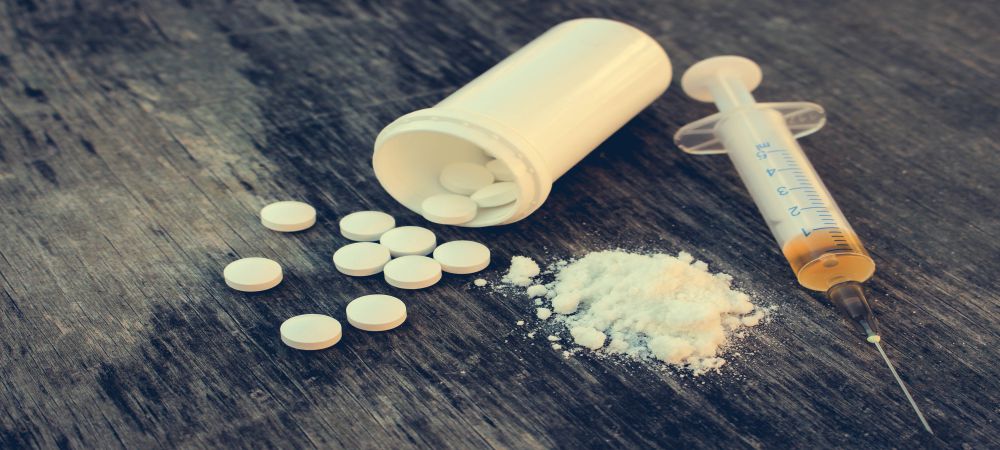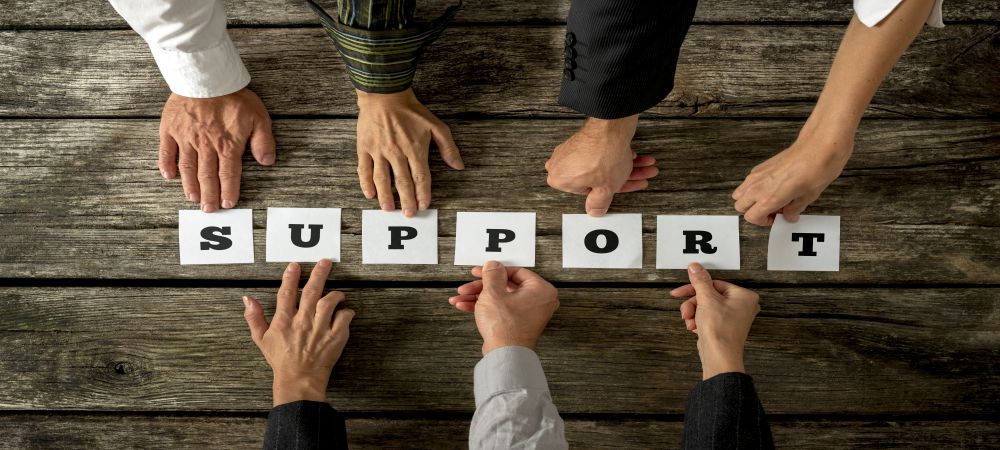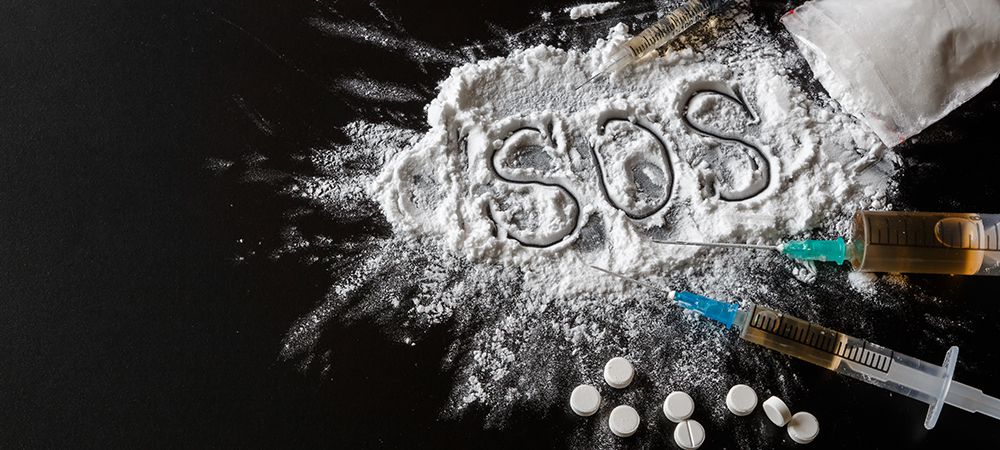
How Do You Know if Someone you Love is Addicted to Heroin?
How to tell if someone you love is addicted to heroin is not as easy as it seems. Except you are an expert, knowing how to tell if someone you love is addicted to heroin requires some quick study. If you don’t know the things to look out for, confusing moodiness as addiction can occur.
And it’s not a question of asking the person in question. They’ll get defensive and you’ll not be able to step in to help.
The signs of heroin addiction can be somewhat elusive. Understandably, you will be apprehensive when you suspect a loved one of using heroin. However, there is a lot more to consider before resigning to think the person is addicted.
Also, it’s not just about knowing how to recognize heroin addiction. There is a further need to know to be there for such a person. During their addiction period, your loved one needs you to do more than call out their faults. They need to experience support, especially when they decide to quit.
Owing to this, this guide answers the question of how to know if someone you love is addicted to heroin. But perhaps more importantly, we explore the steps to take if you find out a loved one is abusing heroin.
What is Heroin Addiction?
Heroin, as a substance always spoken of, in the context of addiction, actually comes from a flower. This flower is known as the opium poppy. This flower grows mainly in Mexico, Asia, and South America. Its addictive property is one of the major reasons its usage is illegal in the US, since 1924.
The appearance of heroin can either be white or brown powder. In several places where users indulge in, they call it different names. Some call it ‘horse, smack, junk or brown sugar’.
How Does Heroin Addiction Happen?
However illegal it is, heroin use in today’s world is common amongst young folks. There are several factors responsible for this. The most common of these influencing factors is peer pressure. In a bid to “fit in”, relieve stress, or have fun, individuals may abuse heroin.
It almost always starts with the person thinking they will use it just once. With the first use, all they want to do is to have that one-time fun. However, due to the addictive nature of the substance, it doesn’t stop there. The second use comes and then a third follows. It continues, and before you know it, dependence occurs.
Heroin addiction in plain terms is a situation where your loved one cannot do without frequent use of the substance. Heroin is an illicit drug, a very addictive one. According to HHS.gov, heroin belongs to a class of drugs referred to as Opioids.
Other substances in this class include; fentanyl and other pain relievers. Most of these pain relievers offer maximum benefit when you use them properly. However, if you misuse them, they can lead to symptoms of drug abuse.
DrugAbuse.gov defines addiction as a chronic, relapsing disorder, which possesses characteristics such as compulsive drug seeking and use. The user persists with this action despite the adverse consequences.
Scientifically, drug addiction is termed a disorder of the brain. This is because parts of the brain play an active role in its manifestations and process. Addiction to heroin alters and modifies the function of parts of the brain responsible for reward, stress, and self-control.
One thing you should know about drug addiction is that symptoms may persist, even if your loved one stops taking the substance. For instance, if your loved one is addicted to heroin, the constant abuse may affect specific organs. This leads to chronic health effects. If you don’t do anything about it, they may suffer from this throughout their lifetime. In the worst case scenario, it may lead to death.
The good news is, heroin addiction is preventable. With proper care and monitoring, it is also treatable. Prevention is the best option. But in the case where the person is already addicted, heroin addiction treatment is what you should pursue.
Why You Should Be Worried About Heroin Addiction
To be curious about how to tell if someone you love is addicted to heroin, it shows your worry. To put your mind at ease, saying there is nothing to worry about may have been handy. However, it’s not the best advice for you.
You need to worry, and there are several reasons why you should. The damage resulting from long-term heroin addiction is intensive.
This damage ranges from short term effects to long (life-lasting) term effects. If the addict in question does not take heed, they can get to a level of irreversible damage. Continuous use of the substance changes the brain’s physical structure.
It goes further to change the physiological structure of the brain. This creates an imbalance in the neural and hormonal systems. Once these happen, it’s near impossible to effect a reversal.
Related Article: The Long Term Effects of Heroin Abuse
How Heroin Affects The Brain
It is possible for the white matter of the brain to deteriorate due to heroin use. When this takes place, your loved one will start to find it harder to make decisions. They also become unable to regulate their behaviours. It changes them from who you used to know them as. They become very incapable of handling stress, an element that characterizes everyone’s daily life.
Heroin abuse may occur in different forms. A classic way of using the drug is by injecting it. You can also snort, sniff, or smoke the substance. What determines how you use the substance is primarily the purity of it. There is also the factor of your preference.
Whichever way your loved one uses the substance, its trip to the brain occurs fast. This makes addiction to it very fast. You can get addicted after first use. Hence, if you can closely monitor your loved one — children, brother, spouse — ensure they don’t even experience the substance.
What Does Heroin Feel Like
Upon usage, heroin fills users with a rush of good feeling and happiness. The events that follow this are a slowed movement of everything around. It begins to seem as though the world is slowing down. Thinking happens slowly, the same as walking. A first-person recap of the experience states that it feels as though you are in a dream.
For the moment when the substance is in effect, your body loses the sense of pain. It slows down your heart rate and breathing. This surreal feeling is enough to cause your loved one to indulge the next time. This easy path to addiction is why heroin addiction treatment is one of the toughest to administer.
If the user doesn’t know to stop during a heroin abuse session, an overdose may occur. Overdosing on heroin stops the natural breathing process. If you don’t want this to be the fate of your loved one, you should step in.
If you step in proactively for someone who has bad company, you can save them from the risk of such addiction. Even in the early stages of heroin usage, your help can be a significant influence on their life. The longer it takes for an intervention, the harder it is to stop using heroin.
Additionally, there are varying reasons why your loved one may use heroin. The reasons behind this indulgence are always plausible. For some, it’s anxiety, worry, amongst other stressors.
But using heroin is not the best answer to these. It only provides temporary relief while leading your loved one on the highway to depression, ADHD, and bipolar disorder.
What are the Symptoms of Heroin Withdrawal?
Getting rid of heroin addiction is important. But you should know you can’t achieve it in-house. You need medical monitoring and the input of a heroin addiction treatment expert. This is thanks to the possibility of heroin withdrawal symptoms.
The effect of heroin on your loved one may last five hours before they need another dose. However, in some persons, it can be ten hours. If they don’t indulge at the time they begin to crave again, they may begin to experience withdrawal symptoms.
WebMD lists the following as withdrawal symptoms of heroin.
- Jitters
- Chills
- Pain in the muscles and bones
- Insomnia
- Cold flashes
- Diarrhea and vomiting
- Uncontrollable leg movements
How to Tell if Someone you Love is Addicted to Heroin
How to tell if someone you love is addicted to heroin is not straightforward. For the most part, you can’t simply seat them down to have a conversation about it. They will never give you an answer that affirms their condition.
It is most probable for them to not have accepted that they are in such condition. That’s how it happens with almost all addicts. They may not accept their condition believing they can quit just whenever they want to. This is not true.
How then can you, a family member or a friend, be able to ascertain that your loved one is addicted to heroin? How do you know if someone is using heroin? There are more than enough signs and symptoms to look out for. These are categorized in the different aspects of life they fall in.
Physical signs of heroin use and addiction
Physical reactions are the fastest pointers that answer how to know if someone is on drugs. There are many of them, which vary from individual to individual. One major cause of this variation in physical symptoms is the mode of consumption. A person who injects heroin into the system may suffer from track marks on the part of the body they use frequently.
Here are some of the physical side effects you’ll notice in the short term:
- Frequent sedation
- Development of flu-like symptoms
- Flushing of the skin
- Suffer from drowsiness
- Pinpoint pupils
- Loss of weight
- Limbs get heavy
- Slow heart rate
- Frequent itching
- Incoherent speech
- Loss of menstrual cycle (women)
- Infections at the injection site
Emotional signs of heroin use and addiction
Emotional and psychological issues may occur if your loved one is abusing heroin. More often than not, it is possible to notice these emotional and behavioural indicators. The common symptoms include:
- Disorientation
- Mood swings
- Cloudy thoughts
- Quick irritation
- Difficulty in making decisions
- Memory loss
- Loss of interest in activities that once delighted you
- Uncontrollable craving
- Paranoia
- Lack of motivation
- Euphoria
Behavioural signs of heroin use and addiction
The continuous use of heroin can lead to changes in how a person behaves. This is because the person begins to put heroin use first, above other things. This leads to;
- Neglect of duties and responsibilities at home, workplace, with friends and family, etc.
- Unstable financial life
- Incessant borrowing from friends and family
- Overly secretive
- Lack of self-control
- Impulsiveness
- Change in lifestyle
- Change of friends
- Solitude
- Use of long-sleeve dresses to hide injection marks
- Hostility
- Tardiness
- Erratic behaviour
- Legal problems
- Loss of attention to hygiene and appearance
Beyond these signs and symptoms, it may also be necessary to know how the substance or its accessories look like. This will help your quest to tell if someone you love is addicted to heroin. When you know what devices they use, or what the drug looks like, you’ll be on the lookout.
More often than not, there is always the need for paraphernalia to get high. There are several of these including:
- Injections
- Needles
- Pipes
- Spoons
- Lighters
- Rubber tubing
- Elastic bands.
Normally, some of these things seem regular. You probably have them in your home too. However, they serve different purposes with heroin addicts.
Also, heroin itself is a powdery, crumbly substance. It’s not purely white. Off-white will better categorize its colour. In some cases, it can be dark brown or black.
You should also know about black tar heroin. It gets its name from how it looks. It is black and very sticky. Different age groups of people take these substances.
One age group with an increasing number of heroin addiction cases is adolescence. It’s becoming alarming in countries like the United States and Canada. The National Institute on Drug Abuse states the symptoms of addiction at this level to be similar to normal adolescent behaviour.
For instance, adolescents tend toward being moody, even when not on drugs. This sign is also what you find in someone using heroin at that age. Hence, it’s easy to pass signs of heroin addiction as a general occurrence in the age group.
This calls for parents to take critical note of their children, especially their friends. At this age, the major cause of heroin addiction is peer pressure. Kids want to be like their ‘cool friends.’ Such children begin to miss classes; experience distortion in feeding and sleeping habits. As a parent, you’ll also notice such children addressing drug substances in slang.
Some of these symptoms may play out in a kid though not addicted to heroin. In any case, you should seek prompt help. You should reach out to a counsellor. If you are not sure of what exposure your child may currently have, visiting a physician is good advice.
Remember earlier in this article, we pointed out that painkillers may also contain artificial opioids. Hence, you should watch out for the kind of drugs your child takes. Abusing painkillers will get teenagers high, and exposes them to side effects. These side effects can be lethal in some persons, and not, in others. It depends on the physiological makeup of the child.
Early intervention is always critical. It increases the chance of bringing the loved one in question back to normalcy. The intervention process starts with friends and family. But it doesn’t end there.
How to Help someone suffering from Heroin Addiction?
It’s not enough to know how to tell if someone you love is addicted to heroin. You need to take steps. More importantly, you should do something quickly. When you take steps later, it becomes very difficult.
Heroin addiction recovery can be a very heartbreaking journey. You may have to watch your loved ones struggle with addiction withdrawal symptoms. They may even suffer a relapse. It gets overwhelming, and you’ll be tempted to quit helping. You probably have personal issues to deal with too.
However, you should know that not solving the addiction problem is just you postponing doom day. The results can be detrimental to you, the person, and the whole family. It’s not the time to run, it’s the time to encourage such loved ones through the recovery journey. Here are some things you need to do:
Educate yourself about the problem
Just like you have started by scouring this page, there’s a lot more to do. You should brush up your knowledge about addiction; heroin specifically. The more knowledge you have about the concept of heroin addiction, the easier it becomes to deal with your loved one.
Show support
There are always plausible reasons for addicts to continue down the path. Hence, you need to help such a person better understand their situations. You need to let them know you understand. You need to relate with them, at their level. Where possible, you can help them navigate some of their daily struggles.
Encourage them to get professional help
Addicts find it hard to admit their situation and that they need help. Just like you will do for a loved one suffering heart disease, do the same for them. Be emphatic towards them. They technically have no control of the situation. They can’t help it. Don’t give up on them. Help them know they need help and should get one.
Once you know how to tell if someone you love is addicted to heroin, don’t make them feel uneasy. Avoid making them feel ashamed of themselves. This becomes more important when they start with the recovery process. They can’t go through it alone. Be there for them, it helps their confidence.
Your Loved One can Achieve Sobriety
Knowing how to tell if someone you love is addicted to heroin doesn’t solve the problem. You will be met with denial when you confront them. You need to do all you can to get your loved one to commit to heroin addiction rehab.
Beyond taking care of them, you also need to take care of yourself. Supporting them effectively means supporting yourself. Be the confidence they need to seek recovery.
Here at 1000 Islands Rehab Centre, we can help you organize an intervention for your loved one. But it doesn’t stop there, here, we offer addiction treatment services that can be tailor-made for your loved one. Get in touch with us today!





